Publications
Articles, publications, books, tools and multimedia features from the U.S. Institute of Peace provide the latest news, analysis, research findings, practitioner guides and reports, all related to the conflict zones and issues that are at the center of the Institute’s work to prevent and reduce violent conflict.
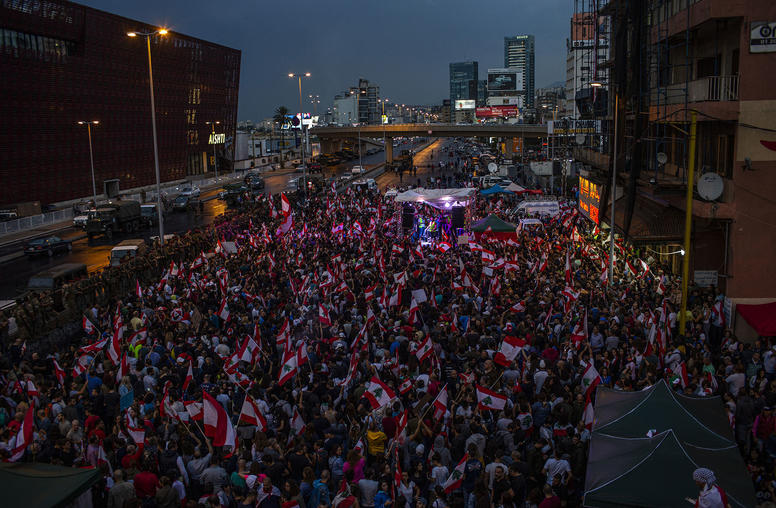
Lebanon’s Protests Set to Pick up Despite Coronavirus Pandemic
Protests erupted in Lebanon last year over the country’s lagging economy and sclerotic, sectarian-based political system, but slowed amid the global pandemic. The small Mediterranean nation’s economy is in free fall, with the World Bank estimating more than half the population living below the poverty line. Protesters were forced to switch tactics amid the coronavirus and the lock down measures have forced even more Lebanese into poverty. But protesters are planning to return to the streets as COVID precautions ease. USIP’s Elie Abouaoun and Osama Gharizi discuss how the government has responded in the months since protests erupted in October 2019, how the protesters adapted during the pandemic, and the role of Hezbollah.
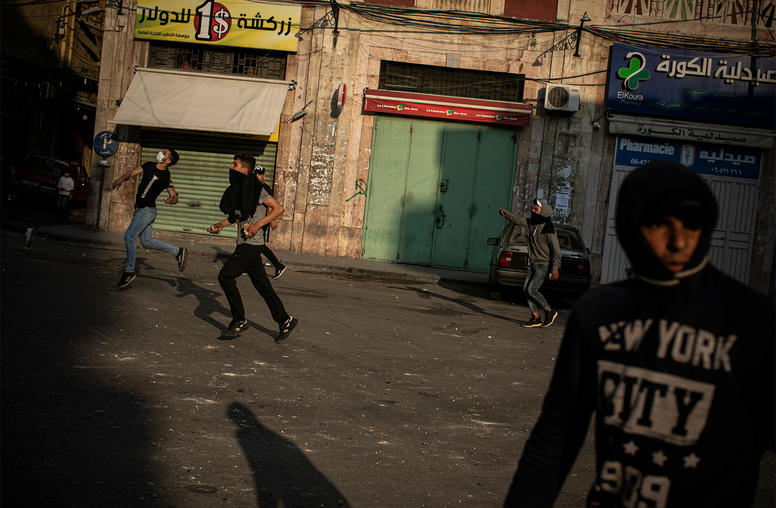
Lebanon's Unraveling Could Upend the Region and U.S. Interests
While Americans are understandably preoccupied with multiple crises at home, a catastrophe is looming in Lebanon with significant implications for the United States. Roiled by a major debt crisis that has been compounded by the COVID-19 pandemic and economic lockdown measures, Lebanon is rapidly spiraling toward the worst-case scenario: a failed state on the eastern Mediterranean.
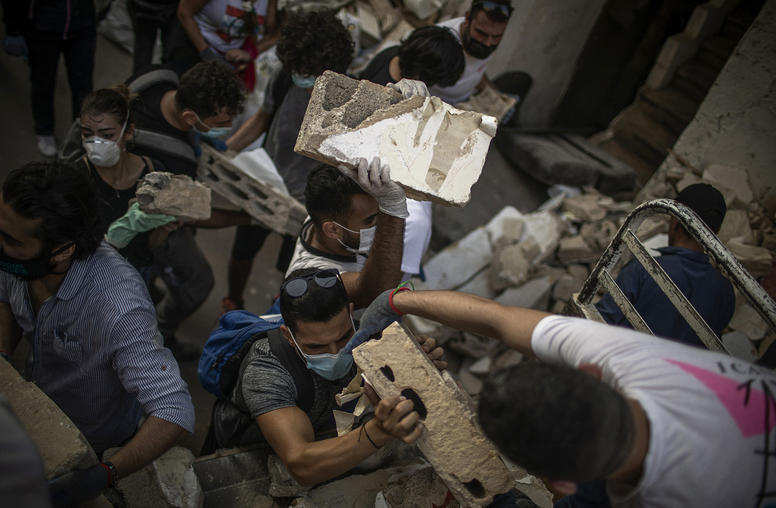
After Beirut Blast, What’s Next for Lebanon’s Broken Political System?
A massive explosion ripped through the Port of Beirut on August 4, sending shockwaves through the Lebanese capital, killing approximately 200, injuring thousands, and leaving upwards of 300,000 homeless. This comes with Lebanon already on the brink of economic collapse, struggling to address a COVID outbreak, and as the trust gap between citizens and the state is wider than ever. Although in the immediate aftermath of the explosion some suggested Lebanon had been attacked, the cause of the explosion is likely much more banal: government negligence resulted in thousands of pounds of explosive chemical material to be improperly stored in the port for years. USIP’s Elie Abouaoun and Mona Yacoubian examine what this means for Lebanon’s beleaguered political system, the long-term implications for the country, and how the international community has responded so far.
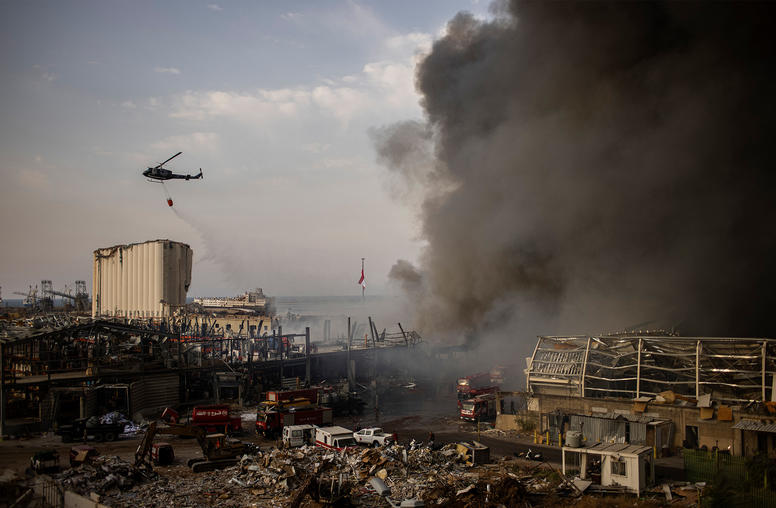
Lebanon on the Brink as Reform Remains Stalled After Beirut Blast
More than two months after a massive explosion rocked Beirut, the country’s twin political and economic crises continue to spiral while a COVID crisis descends upon the Mediterranean nation. International aid for repairing billions in damage and bolstering Lebanon’s flailing economy is largely contingent on sweeping political reforms that have yet to materialize. After another Lebanese prime minister resigned last month, President Michel Aoun has called for consultations next week with members of parliament to name a new premier. This comes days before the October 17 anniversary of mass protests that broke out last year, which began as demonstrations against unpopular taxes but rapidly expanded to calls for an overhaul of the country’s sectarian-based political system.
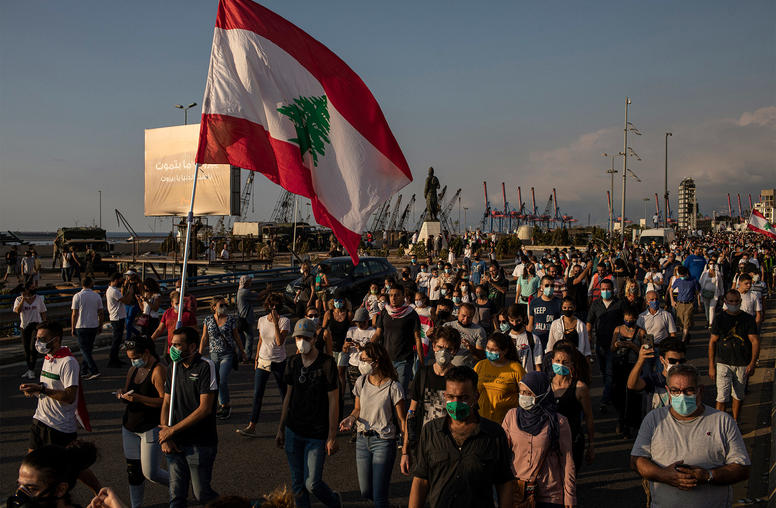
The Beirut Blast Has Yet to Spark Political Reform
Over two months later, there are still more questions than answers regarding the Beirut explosion that killed over 200 people and damaged large swaths of Lebanon’s capital city. Meanwhile, the fallout from the explosion has forced the resignation of Lebanon’s government, which had already been under fire after months of protests over corruption and a deteriorating economy. USIP’s Elie Abouaoun and Osama Gharizi look at where the blast investigation stands, what’s holding up the formation of a new government, and what a new outbreak of COVID-19 means for Lebanon.

Will the Israel-Hamas War Spiral into a Wider Conflict?
With the Israel-Hamas war poised to enter its fourth week, the conflict continues to escalate. The Israeli military announced on October 25 it had struck more than 7,000 targets inside Gaza, ranking the current military campaign among the most intense globally in recent memory. The conflict has resulted in an estimated 1,400 Israelis killed, according to Israeli government sources and more than 6,500 Gazans killed, according to the Hamas-controlled Health Ministry. More than 200 hostages are held captive in Gaza.

Is the Middle East on the Verge of a Wider War?
Three months after the Hamas terror attack on Israel, reverberations from the ensuing conflict in Gaza threaten to engulf the region in a wider war.

As Hezbollah-Israel Tensions Simmer, Lebanon’s Domestic Crises Drag On
Nearly six months after Hamas’s October 7 attack on Israel, tensions in two key flashpoints — Lebanon and Syria — continue to rise with significant Israeli airstrikes in both countries, leading to the highest death tolls in each country since October 7. Amid these rising tensions, ongoing clashes between the Lebanese militant group Hezbollah and the Israel Defense Forces (IDF) threaten to escalate into a wider war. At the same time, Lebanon continues to reel from a series of crises that have unfolded over the past four and a half years, highlighting Lebanon’s perilous position as the Gaza conflict continues to reverberate throughout the region.

The Growing Flashpoints Between the U.S. and Iran
Tension between Washington and Tehran has been a growing undercurrent of the war in Gaza, even as both countries tried to prevent it from sparking a direct confrontation during the first six months of fighting. Robin Wright, a joint fellow at USIP and the Wilson Center, explores the evolving flashpoints in the world’s most volatile region as well as the challenges for U.S. diplomacy, the new triggers for a wider regional conflagration and the historical backdrop.